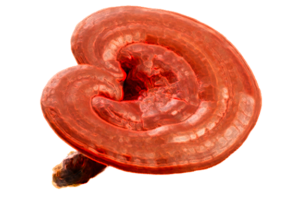Zi-Yi Zhoua, Yu-Ping Tanga, Jun Xianga, Pin Wuaa, Hui-Ming Jinc, Zhong Wangd, Masao Morid, Ding-Fang Cai
Abstract
Aim of the study
To investigate the neuroprotective effects of water-soluble Ganoderma lucidum polysaccharides (GLPS) on cerebral ischemic injury in rats, and to explore the involved mechanisms.
Materials and methods
Two models [middle cerebral artery occlusion (MCAO) in Sprague–Dawley (SD) rats and oxygen and glucose deprivation (OGD) in primary cultured rat cortical neurons] were employed to mimic ischemia–reperfusion (I/R) damage, in vivo and in vitro, respectively. Cerebral infarct area was measured by tetrazolium staining, and neurological functional deficits were assessed at 24 h after I/R. Neuronal apoptosis was studied by Nissl staining and DNA fragmentation assay. Neuronal injury was assessed by morphological examination using phase-contrast microscopy and quantified by measuring the amount of lactate dehydrogenase (LDH) leakage, cell viability was measured by sodium 3′-1- (phenylaminocarbonyl)-3, 4-tetrazolium-bis (4-methoxy-6-nitro) benzene sulfonic acid (XTT) reduction. Neuronal apoptosis was determined by flow cytometry, and electron microscopy was used to study morphological changes of neurons. Caspase-3, -8 and -9 activation and Bcl-2, Bax protein expression were determined by western blot analysis.
Results
Oral administration of GLPS (100, 200 and 400 mg/kg) significantly reduced cerebral infarct area, attenuated neurological functional deficits, and reduced neuronal apoptosis in ischemic cortex. In OGD model, GLSP (0.1, 1 and 10 μg/ml) effectively reduced neuronal cell death and relieved cell injury. Moreover, GLPS decreased the percentage of apoptotic neurons, relieved neuronal morphological damage, suppressed overexpression of active caspases-3, -8 and -9 and Bax, and inhibited the reduction of Bcl-2 expression.
Conclusions
Our findings indicate that GLPS protects against cerebral ischemic injury by inhibiting apoptosis by downregulating caspase-3 activation and modulating the Bcl-2/Bax ratio.
Reference:
Journal of Ethnopharmacology, Volume 131, Issue 1, 19 August 2010, Pages 154–164

